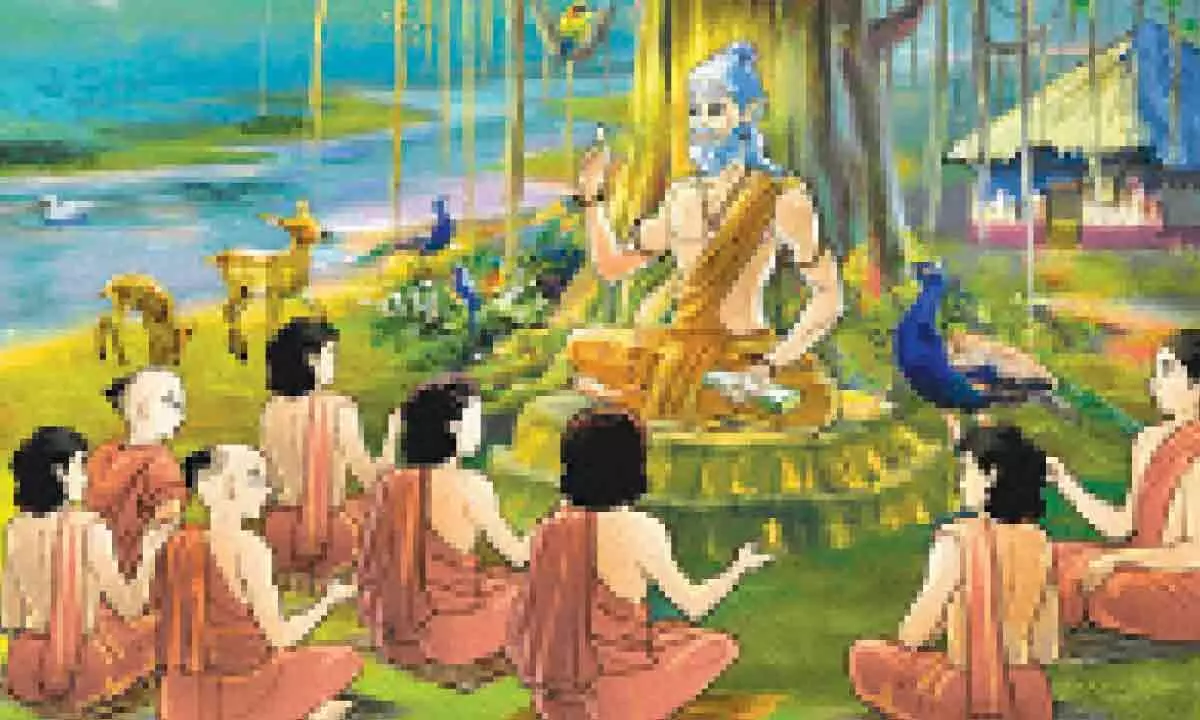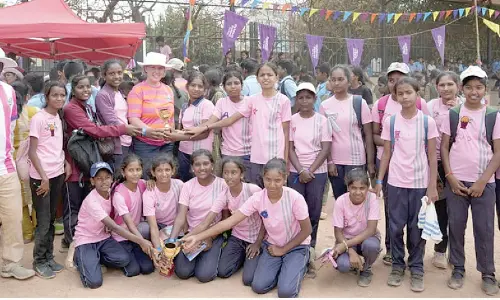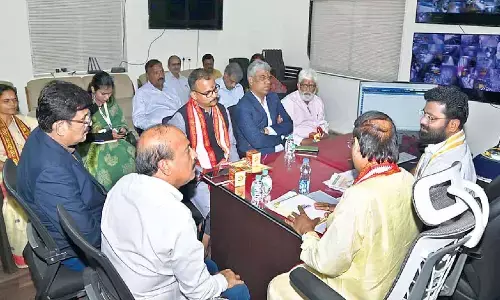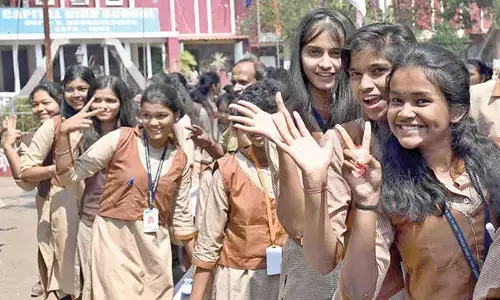Two Levels of God

The result of the two levels of learning is the two levels of Reality. The lower level is the common man’s idea of God in heaven. There can be multiple names and forms in this, accepting all traditions and religions. The result is heaven for a limited period, which is in proportion to the actions we have performed. The higher level of truth is only one and it is the impersonal Brahman, which is told in the Upanishads, the impersonal entity, the infinite consciousness, knowing which leads to freedom
Indian philosophy is all-inclusive. Give any description of what we call God, Vedanta does not negate. You worship a snake mound, or a tree, or a hill, or an idol in a temple, or perform a ritual called yajna to please deities, or to manipulate the planets – Vedanta does not reject them. On the other hand, you try to use logical arguments, examine the creation in a rational way, that too is accepted. Someone says there are 33 categories of gods, someone says what we call God is not a person at all, but pure consciousness. That too is not rejected. Vedanta puts all these activities on different levels. But an educated person is confused, as he/she cannot know at what level he stands, unless by going to the original doctrinal texts, or at least, listening to the Gita from a competent teacher.
The Mundaka Upanishad clarifies this by placing all our activity in two categories – the lower level and the higher level of learning. This is quite simple. It is like accepting when the child says that the sky is blue. But to a student of science, we say that the sky is colourless. Mundaka Upanishad does the same. All human activities - like worshipping a host of gods, or performing yajnas told in the Vedas, pilgrimages, or acts of charity – all these are called the lower level of learning. All these activities come under the category of karma, or human action, seeking a result, which must be experienced by the person.
The higher level of learning is a logical enquiry. This is not a physical activity, but a mental exercise. A person goes to a teacher and listens to Vedanta which says, ‘you are That’, meaning that you are divine in nature. To realise that you are expected to purify your mind and evolve into that level, by not identifying with the lower self as your identity. Such an awareness is enlightenment. This awareness is also called liberation from all bondages of his own making. This awareness is not achieved by karma, but by thinking.
We often think that an enlightened person stops doing rituals or any activities which are normally done by others. It need not be so. There is no binding on the enlightened person that he should or should not do any ritual/action. For an ordinary person, the ritual gives the fruit of that action, as he desires it. For the enlightened, there is no fruit of action, because he does not have a motive for the fruit of action. In fact, he does not even think that he is the doer. He realises that the body-mind-complex, which is not his real self, is the doer.
The same Vedic rituals which give the desired fruit and bind a person, can be a tool in the spiritual path for a thinking person. It is because the rituals consist of such passages which are for contemplation. At some point, a person may dwell on the meaning of the passages and become aware of the higher learning. He may continue to do rituals, but his motive is now different. What he did earlier was a desire-driven action, but what he does now becomes karma yoga. There is freedom in his actions.
Swami Vivekananda (whose birthday was celebrated on Jan 12th) says that the person who performs the Vedic rituals with a desire of getting the fruit is like a slave, and the person who performs them without seeking fruit is working like a master.
The result of the two levels of learning is the two levels of Reality. The lower level is the common man’s idea of God in heaven. There can be multiple names and forms in this, accepting all traditions and religions. The result is heaven for a limited period, which is in proportion to the actions we have performed. The higher level of truth is only one and it is the impersonal Brahman, which is told in the Upanishads, the impersonal entity, the infinite consciousness, knowing which leads to freedom.
(The writer is a former DGP, Andhra Pradesh)









